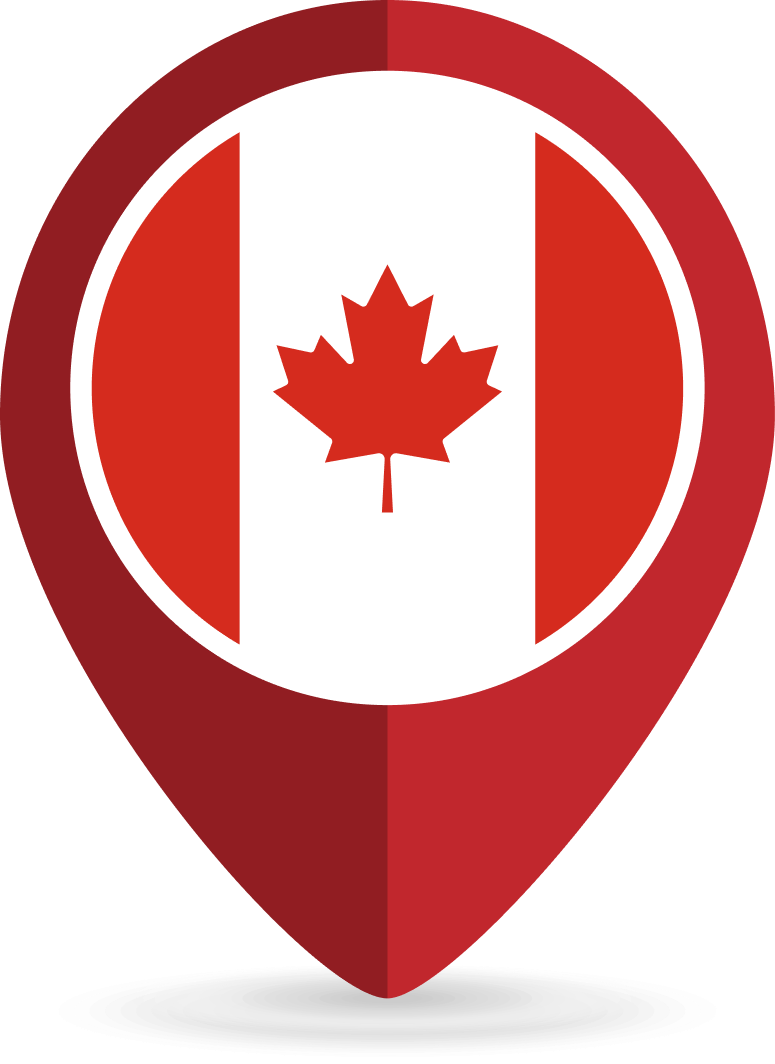Cost of Living in Toronto, Canada: Rent, Food & Other Living Expenses
The cost of living in Toronto for international students can vary significantly depending on several factors, such as university fees, the chosen program, duration of stay, accommodation type, transportation, and miscellaneous expenses.
On average, international students should budget around 31,000 CAD for their living expenses in Toronto. For Indian applicants, this translates to approximately 18.93 lakhs INR.
Toronto is a diverse and vibrant city, often referred to as the cultural hub of Canada, and it’s no wonder that it attracts more than 17% of the international students in the country. When deciding on their academic journey, students take into account a range of considerations, including the total cost of attendance and the availability of suitable student accommodation in Canada.
How Expensive is Toronto?
Toronto is one of the premier destinations for international students in Canada, along with cities like Vancouver, Montreal, Quebec, Ottawa, and Alberta. What sets Toronto apart is its combination of affordability and a conducive learning environment. For students who are looking for alternatives to the higher living costs in the UK or the USA, Toronto, and other Canadian provinces, offer appealing options for pursuing their education.
Cost of Living in Toronto, Canada: Type of Expenses
- Accommodations: For international candidates, residential facilities prove to be highly important and these contribute the most to the total cost of living.
- Boarding: Managing the meal plan is crucial for international students, as finding a balance between eating healthily and cost-effective food is a priority.
- Transport: If a student does not secure on-campus accommodation, then they must find a transportation facility to reach the institution.
- Medical: Health services are a top priority for international candidates. Carrying all necessary prescriptions is essential. Upon arrival, it is crucial to buy essential and prescribed medicines to ensure a disease-free lifestyle, especially in the present (Covid-19) era.
- Other Expenses: Apart from these key expenses, there are other elements in student life to consider, such as stationary supplies, practical apparatus, computers, internet connection, and more.
Cost of Living in Toronto, CA: Accommodation
- One-Bedroom Apartment: On average, you can expect to pay approximately 1,000 CAD (61,000 INR) per month for a one-bedroom apartment.
- Two-Bedroom Apartment: If you’re considering a two-bedroom apartment, the average monthly rent in Toronto increases to around 1,500 CAD (91,600 INR).
| City District | Rent (Studio to 1-3 Bedrooms in CAD) | Rent (Studio to 1-3 Bedrooms in INR) |
| Riverdale | 1,395-3,950 | 85,100-2.41 lakhs |
| Kensington | 1,500-3,200 | 91,600-1.95 lakhs |
| Parkdale | 1,375-2,900 | 83,900-1.77 lakhs |
| The Beaches | 1,500-4,250 | 91,600-2.59 lakhs |
| Liberty Village | 1,750-4,433 | 1.06 lakhs-2.70 lakhs |
| Yorkville | 1,800-4,450 | 1.09 lakhs-2.71 lakhs |
| Runnymede | 1,550-3,525 | 94,600-2.15 lakhs |
| East Danfort | 1,211-3,400 | 73,900-2.07 lakhs |
Cost of Living in Toronto, CA: Education Expenses
The cost of education in Toronto is subject to variation based on the specific university, the chosen course of study, and the area of specialization. Here, we outline the university-specific education expenses in Toronto:
| Universities | Tuition Fee (CAD) | Tuition Fee (INR) |
| University of Toronto | 60,510 to 67,530 | 36.95 lakhs to 41.23 lakhs |
| York University | 31,146 to 58,915 | 19.02 lakhs to 35.97 lakhs |
| Toronto Metropolitan University | 25,300 to 45,000 | 15.45 lakhs to 27.48 lakhs |
| OCAD University | 28,000 | 17.09 lakhs |
Cost of Living in Toronto, CA: Groceries
The average cost of food and groceries in Toronto typically falls within the range of 40 to 100 CAD (2,442 to 6,100 INR). In many housing arrangements, the meal plan is not part of the rent, which means candidates must either procure raw materials and cook for themselves or dine out. However, eating out may not be the healthiest option, especially considering the ongoing challenges of the COVID-19 era. Here’s an approximate breakdown of the grocery costs in Toronto, as of 2023:
| Groceries | Cost (CAD) | Cost (INR) |
| Milk (1 liter) | 3.74 | 228 |
| Loaf of Bread (500 gm) | 3.61 | 220 |
| Rice (1 kg) | 4.44 | 271 |
| Eggs (12) | 4.53 | 276 |
| Potato (1 kg) | 3.50 | 232 |
| Tomato (1 kg) | 4.85 | 296 |
| Onion (1 kg) | 3.69 | 243 |
| Lettuce (1 head) | 3.24 | 197 |
| Water (1.5 liter bottle) | 2.30 | 140 |
Cost of Living in Toronto: Transportation
When considering the cost of living in Toronto, it’s important for students to account for transportation expenses. Daily commutes to and from the college can add to the overall living expenses. The cost of traveling in Toronto depends on the mode of transportation chosen. Here’s an overview of the average monthly transportation costs in Toronto for international students:
| Transportation Services | Cost (CAD) | Cost (INR) |
| One-Way Ticket (local transport) | 3.35 | 204 |
| Monthly Pass | 156 | 9,500 |
| Taxi Start | 4.62 | 282 |
| Taxi 1 km | 1.75 | 106 |
| Taxi 1 hour | 31 | 1,893 |
Cost of Living in Toronto: Utilities and Mobile Connectivity
Toronto, renowned for its relatively high cost of living, often necessitates households to depend on dual incomes to effectively manage expenses. When you’re an international student in Toronto, staying connected is essential, and this includes managing your mobile communication costs.
In addition to the average monthly utilities for a two-bedroom apartment, excluding cable, which come to approximately 167 CAD (10,198 INR), there’s an option for international students to stay connected with a CanadianSIM mobile plan. This plan offers a generous 40 GB of LTE data at just $40 per month, providing you with seamless access to the online world.
- Plan: $40 per month
- Data: 40 GB of LTE data
- Contract: No contract required
- Features:
- Unlimited Canada-wide calls
- Unlimited local and international text messaging (SMS)
- No set-up fees
- Caller ID and voicemail
By integrating a CanadianSIM card into your daily life, you can ensure that you’re not only managing your utility expenses but also staying connected in a cost-effective manner during your studies in Toronto. This detailed breakdown of utility costs, along with the option for affordable mobile connectivity, offers valuable insights into the financial aspects of daily life for international students in Toronto.
| Utilities | Cost (CAD) | Cost (INR) |
| Basic (Electricity, Heating, Cooling, Water, Garbage) | 198.78 | 12,139 |
| Mobile Phone (Monthly Plan) | 62.94 | 3,843 |
| Internet | 74.44 | 4,545 |
Cost of Living in Toronto: Entertainment
When it comes to your cost of living in Toronto, factoring in entertainment and leisure is essential. This spending category encompasses a range of enjoyable activities, including dining out, socializing with friends, and experiencing the vibrant nightlife in Toronto’s pubs and clubs. The extent of your spending on entertainment is largely influenced by your choices—where you decide to go and how much time you allocate to these activities. It’s important to create a balanced budget that allows you to experience the cultural and recreational offerings of Toronto while also managing your overall living expenses.
| Expense Type | Cost (CAD) | Cost (INR) |
| Fitness Club (1 month) | 69.70 | 4,256 |
| Tennis Club Rent | 26.32 | 1,607 |
| Cinema (1 seat) | 16 | 977 |
| Clothing | 75-160 | 4,580-9,770 |
| Meal (Inexpensive Restaurant) | 23 | 1,400 |
| Meal (McDonald’s) | 13.60 | 848 |
How to Reduce the Cost of Living in Toronto for international students?
Toronto is renowned for its vibrant culture and world-class education, but it’s also known as one of the most expensive cities in Canada and globally. As a student, managing your finances is essential. Here are some effective strategies to reduce the cost of living in Toronto while ensuring a comfortable and fulfilling student life:
- Affordable Housing: Opt for living in a relatively inexpensive residential complex. Choosing more budget-friendly housing can significantly cut down your expenses.
- Smart Transportation Choices: Reduce transportation costs by favoring economical options like buses or local trains/metro over using taxis. Consider biking, which not only saves money but also promotes physical fitness.
- Healthy Eating Habits: Avoid excessive spending on junk food and limit the frequency of visits to clubs or parties. Preparing meals at home or exploring affordable dining options can help you save on food expenses.
- Scholarships and Fellowships: Take advantage of scholarships and fellowships offered by universities. These opportunities can help ease the burden of education costs in Toronto.
- Academic Stipends: Some institutions offer stipends to academically meritorious students. These stipends not only recognize your achievements but also contribute to reducing the overall cost of living.
- Balancing Miscellaneous Expenses: Beyond the essentials, international students encounter various other expenses, such as sports activities, leisure, utilities (internet connectivity, electricity, water bills), and more. To manage these expenses effectively, create a budget and prioritize your spending based on available funds.
It’s worth noting that every student’s financial situation is unique, so adapt these strategies to your specific circumstances. By making informed choices and finding ways to economize without compromising your educational and cultural experiences, you can make your student life in Toronto more affordable and fulfilling.
Related Posts



















